#bnei menashe
Explore tagged Tumblr posts
Text
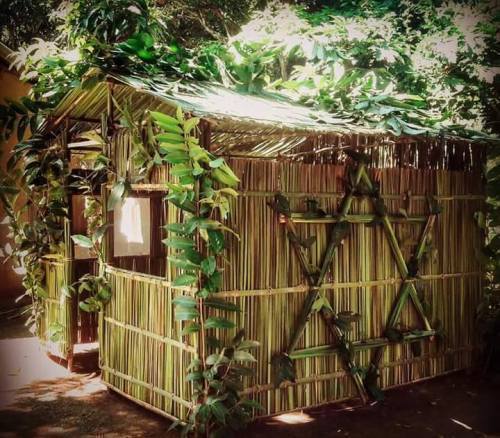
This is one of the beautiful sukkahs made by the Bnei Menashe, the Jews of Mizoram, a state in the northeast of India.
127 notes
·
View notes
Text
You know the drill, reblog for a bigger sample size!
(I'm making versions of this poll for different Jewish diasporas, and I might do a denomination version, too!)
#jupi gets jewish#jumblr#jews#jew#jewish#judaism#polls#tumblr polls#poll#jews of tumblr#mixed jews#mixed#mixed race
#jupi gets jewish#jumblr#jews#jew#jewish#judaism#polls#tumblr polls#poll#jews of tumblr#italki jews#ethiopian jews#yemenite jews#beta israel#georgian jews#caucasus jews#cochin jews#bene israel#bnei menashe#bene ephraim#romaniotes#kaifeng jews#african jews#asian jews#we are such a gorgeously diverse community and i hope y'all remember that!#a jew is a jew is a jew
67 notes
·
View notes
Text
Am Yisrael is ultimately still one people, even after generations upon generations of exile- i fully support like ashkenazim learning Judeo-Arabic or Bnei Menashe making and eating kugel
42 notes
·
View notes
Text
Hindutva literally means being Hindu or Hindu-ness.
How tf is that a negative thing?
We Hindus are proud of our heritage, culture, religious history and scholarly achievements.
How is that an evil thing?
We are decolonising and reclaiming the religious sites which were stolen from us. We are rebuilding those sites with our own money and celebrating their restoration.
How is that hurting anyone? How is that wrong?
Hindus have always believed in the sentiment of live and let live, of living together as one family (Vasudhaiva Kutumbakam). We have welcomed into our fold many different communities and peoples, like the Parsis (Zoroastrians) when they were persecuted and forced to leave their homeland Persia, the Jews (Bene Israelis, Baghdadis, Cochin Jews, Bnei Menashe, Bene Ephraims, etc.), the Tibetans when they were persecuted and their homeland stolen by China, even the Christians and Muslims from different parts of the world when they came to trade here. We have cohabited peacefully with people of other faiths, like Sikhs, Buddhists and Jains, who are so close to us that we intermarry frequently and don't even consider it an interfaith relationship.
Hindus, for the most part, are inherently welcoming people, open and accepting of others as long as they don't try to stifle us or impose their religious beliefs on us. We believe in being nonviolent as long as we aren't pushed into a corner, as long as we're given space to practice our religion, as long as we're not forced to bend so much that we break.
If the Hindus are attacked, if attempts are made to erase or subjugate our religion, then obviously we'll respond in kind. It's the simple concept of self defence.
In the end, I shouldn't even need to state this overtly, but obviously there are bad apples in every cart, and people from every community commit wrongs. But it doesn't define a community. We condemn such wrong acts and will continue to do so. But calling all Hindus or Hindutva itself evil because of a few bad apples is not only illogical, it reeks of prejudice and preconceived hatred. That's when it becomes Hinduphobia.
#hinduism#sanatandharma#hindublr#hindutva#hinduphobia#desi tag#desiblr#hindu culture#religion#desi tumblr#sanatan dharma#ram mandir#ram mandir inauguration#hindu haters
109 notes
·
View notes
Text

Bnei Menashe conducting a Tashlikh ceremony on Rosh Hashana in Mizoram, India, 1989.
The Bnei Menashe translated to "Sons of Menasseh" are a small Jewish group within the indigenous people of Manipur and Mizoram. Since the late 20th century, they claim descent from one of the "Lost Tribes of Israel" and have adopted the practice of Judaism. The Bnei Menashe are made up of Mizo, Kuki and Chin peoples, who all belong to the branches of Tibeto-Burman language family.
109 notes
·
View notes
Text


Flag Wars Bonus Round
10 notes
·
View notes
Text
(JTA) — The temporary shelters that Jews erect during the holiday of Sukkot are meant in part to recall a time when Jews had nowhere permanent to live. In Northeast India, that symbolism is heavy with additional meaning this year.
That’s because large numbers of Bnei Menashe, the Jewish community that lives there, have fled their homes in the state of Manipur since ethnic unrest broke out in early May.
According to the Israeli organization Shavei Israel, about 2,000 people from the Jewish community have been displaced. A different nonprofit that works with the community, Degel Menashe, cites a smaller number, 700.
But either way, the community has been ravaged, with three locations that have been home to large numbers of Bnei Menashe decimated in the violence. Synagogues and homes have burned to the ground, and the number of displaced people has only grown with time.
Now, as the conflict enters its sixth month, what many believed would be temporary displacements in the Manipur hills or the neighboring state of Mizoram are becoming permanent.
“Despite these challenging times for the Bnei Menashe and even in the farthest reaches of northeastern India, they have continued to uphold the ancient tradition of building Sukkot in honor of the festival,” said Michael Freund, chairman and founder of Shavei Israel, which helps “lost tribe” communities return to Israel.
Shavei Israel distributed pictures showing members of the community constructing sukkahs out of bamboo. Their efforts come as their own safety in their areas where they live is in question — or already compromised.
“[For] the Bnei Menashe and the rest of the people who have left Imphal, I don’t think there is any chance of them returning back because there is no security,” said Isaac Thangjom, the Israel-based director of Degel Menashe, which assists Bnei Menashe communities in Israel and India, referring to Manipur’s capital city. “If you ask me honestly, the separation is complete.”
The Bnei Menashe identify as descendants of a “lost tribe” group, tracing their origins to the Israelite tribe of Menasseh. In 2005, a chief rabbi of Israel affirmed their identity as a “lost tribe” group with historic Jewish ties, but researchers have not found sufficient evidence to back the claim. Bnei Menashe Jews began immigrating to Israel in the 1990s, and because of their “lost tribe” status, they all undergo formal Orthodox conversions upon arrival. Around 5,000 remain in the states of Manipur and Mizoram today, and about 5,000 have already immigrated to Israel.
Many have struggled to gain entry into Israel over the past two decades, and they are now asking the Jewish state to expedite the immigration process to help them escape the violence.
Israeli authorities have yet to comment publicly about the situation and did not respond to multiple requests for comment from the Jewish Telegraphic Agency. Israel has recently been seeking to advance its relations with India.
Conflict erupted in May when tribal groups in Manipur launched a protest against the ethnic majority Meitei’s demand for Scheduled Tribe status, which is traditionally reserved for minority tribes. The Bnei Menashe Jews belong to the minority Kuki tribe.
The Kukis (about 16% of the population and majority Christian) say the Meiteis (53% and majority Hindu) already have outsized privilege and political representation in Manipur.
According to local reports, unofficial “but very real” borders have been drawn between what have become Kuki and Meitei areas. Prime Minister Narendra Modi’s government has been criticized for failing to control the situation. In August, opposition lawmakers called for a no-confidence vote over Modi’s handling of the situation, but it was easily defeated.
Some 190 people have died in the conflict since May, according to local media, including at least one Bnei Menashe community member. Over 60,000 are displaced.
Several other Bnei Menashe Jews are hospitalized with injuries, according to Shavei Israel.
In the face of displacement, the Bnei Menashe Jews have remained religiously observant, even as some fled with nothing more than their prayer books and the clothes on their backs, a Mizoram Jewish community member told JTA in June.
“It was so sudden,” said Ariella Haokip, a Bnei Menashe community member taking shelter in Thingdawl, Mizoram. “Funds were sent to us to buy special items for Rosh Hashanah and now for Sukkot. In spite of our misery, it is comforting to think that we are remembered.”
Some are currently staying at government shelters, others at schools and homes of other community members, or rented homes paid for by nonprofit groups. In Thingdawl, Mizoram, one young member has begun organizing Hebrew classes for displaced members, said Thangjom.
Both Shavei Israel and Degel Menashe have been working since May to provide continued support to the Bnei Menashe Jews through donations of food, mattresses, mosquito nets, infant formula, medicines and other necessities. Both organizations have arranged shelters for displaced families. Additional financial support has poured in from Jewish and Christian organizations in the United States and Israel.
For some, the High Holiday season also represents a new beginning, as Degel Menashe races to construct homes for several Bnei Menashe families. Lalam Hangshing, chairman of the Bnei Menashe Council-India, donated a piece of land of about 200 acres in Churachandpur on which nine homes are being constructed.
“It was hoped that it could be ready by Rosh Hashanah but there were some unforeseen delays and challenges,” said Thangjom. “Each family will be allotted a piece of land to grow or raise something of their choice so that it can be a source of livelihood for them.”
5 notes
·
View notes
Text
Michael Freund Shavei Israel - Established The Organization In 2002
Michael Freund founder of Shavei Israel, established the organization in 2002 to assist hidden and lost Jewish communities reconnect with their Jewish heritage. The organization provides educational resources, vocational training, and religious support to communities like the Bnei Menashe of India, the Subbotnik Jews of Russia, and the Kaifeng Jews of China. Shavei Israel also facilitates aliyah for thousands, offering conversion guidance and helping these individuals reintegrate into mainstream Jewish life in Israel.
0 notes
Text
many consider the lost tribe of israel to be “bnei menashe” found in northeastern india and tibeto-burman speaking peoples.
some people practice bongthingism in these regions
1 note
·
View note
Text
Okay yes but no (addition to tags)
Judaism:
Jews are called Jews in english (and some other languages) bc it comes from "Judaism" which come from "Judea" aka Mamlechet Yehudah (Kingdom of Judea), the southern kingdom during the 2 kingdoms era, and the last Hebrew kingdom to fall. That what we were named by the Romans -
But not only. You can see it since the first exile.
In the Book of Esther, with Mordechai ("Mordechai ben Shim'i ben Kish... Ish Yemini" (from the tribe of Binyamin). But also "Mordechai Ha'Yehudi" - which implies it refers to the place he was exiled from (Yehuda).
Isralites:
Usually used to refer to people from the united Kingdom of Israel, or from the northern kingdom during the 2 kingdoms era.
Also if we refer to "children of Yisrael" - not completely correlated with either "jews" or "children of Yehuda"
1. Even though every child of a Jewish woman is Jewish, our lost brothers are still out there 😔. Also children of Jewish fathers and Goy moms, especially in older ages. Still sons of Yehuda.
2. Hi, I'm from the tribe of Levi, we exist??? Also there are Bney Efrayim & Menashe???.
*This poll was submitted to us and we simply posted it so people could vote and discuss their opinions on the matter. If you’d like for us to ask the internet a question for you, feel free to drop the poll of your choice in our inbox and we’ll post them anonymously (for more info, please check our pinned post).
#judaism#yiddishkeit#antisemitism#wtf goyim#<- kept tags#history#book of esther#jews#nitpicking#sorry
1K notes
·
View notes
Text
Bnei Menashe
Context: As the Israel-Palestine conflict is back in news, there is a focus on Jewish community among the Kukis. A section of Kukis community in Manipur and Mizoram identify themselves as Jews and have overtime emigrated to Israel. About Bnei Menashe Around 5,000 Kuki tribal people live in Israel as they emigrated under Israel’s open-door policy for communities recognised as ‘Lost Jewish Tribe’…
View On WordPress
0 notes
Text
Displaced by ethnic violence, India’s Bnei Menashe Jews construct sukkahs nonetheless
0 notes
Text

This is one of the beautiful sukkahs made by the Bnei Menashe, the Jews of Mizoram, a state in the northeast of India.
82 notes
·
View notes
Text
yknow, I cannot think of a better way to reinforce the zionist propaganda that antizionist Jews aren't "really" Jewish and that support of Israel is a fundamental part of Jewish identity than this course of action.
friend, now is the time for you to encourage your antizionist teenager to finish their bnei mitzvah and read a big antizionist interpretation of whatever fucking portion they get assigned. "Ephriam and Menashe wouldn't bring weapons to bear on a captive population."
Take up space in the institutions as someone in opposition to state violence.

me when i give goyim carte blanche to accuse any jew who’s involved with any sort of jewish communal life of being a zionist bc i genuinely just rly fucking hate da joos.
686 notes
·
View notes
Link
The group Shavei Israel and their founder Michael Freund have already moved over 4,000 members of Bnei Menashe to Israel. Freund said there were another 6,500 Bnei Menashe Jews in India waiting to come to Israel, adding, “with G-d’s help in the coming years, we will bring all those who wish to come back home to Zion.” Freund said of the group:
For centuries, they practiced a Biblical form of Judaism, observing the Sabbath, keeping kosher, celebrating the festivals, and following the laws of family purity. They were still performing the sacrificial rites too when they were discovered by the British over a century ago. Interestingly, they were not aware of either Purim or Chanukah, both of which commemorate events that took place centuries after their ancestors were exiled.
#Bnei Menashe#India#Judaism#diaspora#Daily Wire#Israel#Jews#huh#exile#history#culture#Hank Berrien#Purim#Hanukkah
0 notes
Text
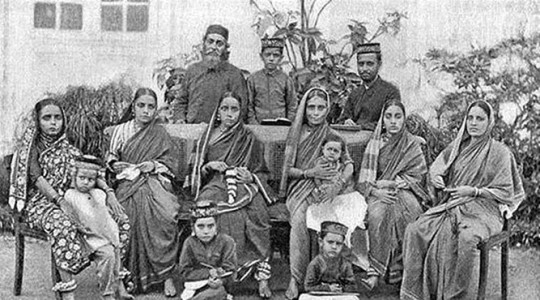

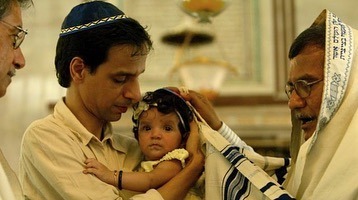

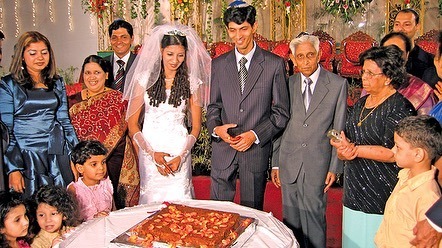
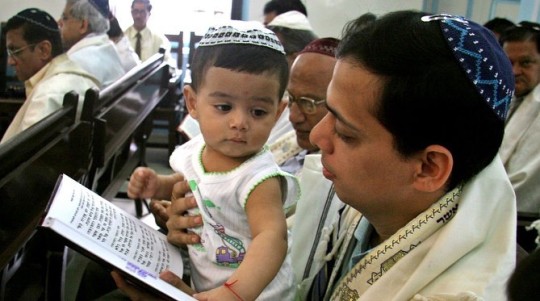
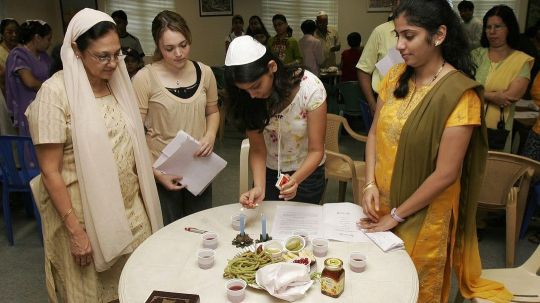
annarajagopal: indian jews exist. in thriving communities. some indian jewish subgroups have names based upon their history and origin, and there are many, but here are a few: cochin jews, the bene israeli and the baghdadi jews. there are also the bnei menashe.
much indian jewry showcases the beauty of indian cultures whilst also maintaining the lifeblood of the jewish people:
“israel is in my heart, india is in my blood,” says ezekiel malekar, the rabbi (head priest) of the synagogue judah hyam hall.
globally, many indian jews have backgrounds in hinduism and buddhism, among other prominent religions in india. some indian jews have even hybridized their practices to be representative of their multicultural backgrounds.
219 notes
·
View notes